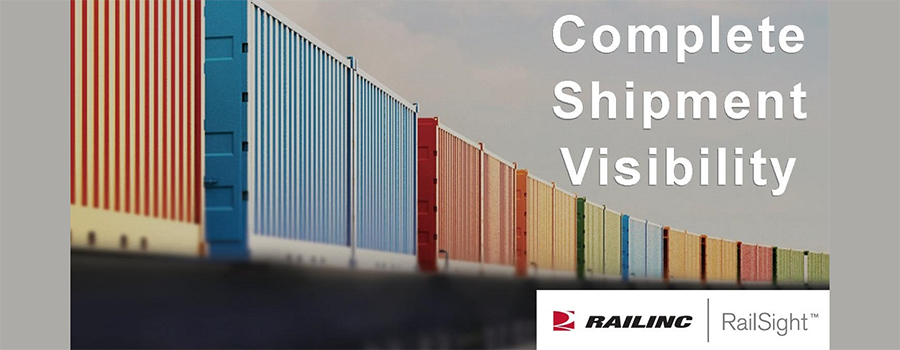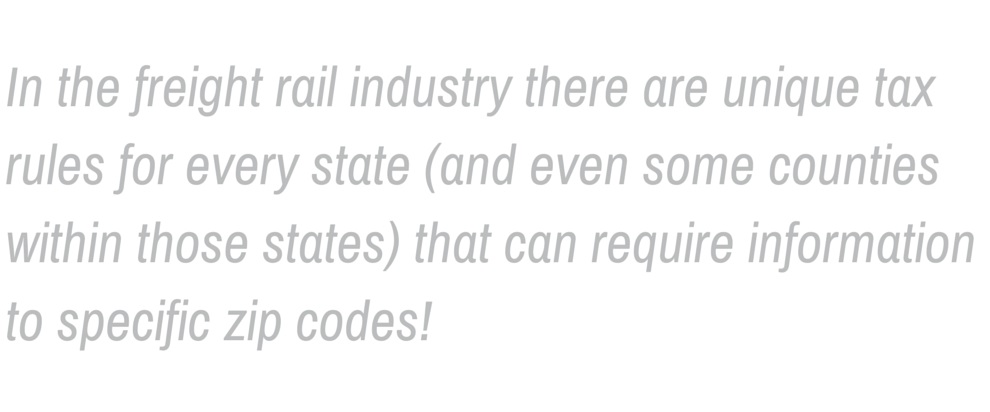
When it comes to taxes, some people like to keep their records in a shoebox, an envelope or two, and likely on their laptops. Imagine what it would be like to track down assets that roam across the vast continent. And you must be in compliance with tax codes from multiple jurisdictions.
There are unique tax rules for every state and even counties within those states that can require information to specific zip codes! Those are the facts of life in the freight rail industry.

Big Data, Big Money
Railcar owners and their agents must keep records straight as they prepare to file and pay taxes each year. Many often turn to Railinc for help. We work with freight railroads, railcar owners and their customers to provide track and trace services for railcars and rail shipments. That location data—the data that identifies when and where a railcar is located—can help validate when a railcar was in a specific tax jurisdiction.
That’s important because railcar owners, their tax accountants and third-party partners must accurately report the location of equipment to file and pay taxes. If taxing authorities have questions about a prior year's filings, this data may help railcar owners save big money.
“I have been involved with reports where the tax implications were into the seven figures,” said Chuck Hieronymi, director of business solutions. “Now that we have years of experience in providing this information to attorneys and other tax professionals, we can provide valuable insights.”
Equipment location for tax accounting is just one example of the kinds of special reports we can produce for qualified customers. Other kinds of reports may include equipment health histories, commodities handled in specific cars, fleet utilization and ownership history.
Strict Data, Confidentiality Policies Protect Your Information
It's very important to note that Railinc data is not open and readily available to anyone. While we provide and facilitate the movement of sensitive data, we take very seriously our role as an industry steward and protector of data. The availability of any data is subject to our strict data and confidentiality policies.
“We provide rail equipment information only to parties who have a direct relationship to the equipment or to others they have specifically authorized,” said Charles Paye, director of commercial products. Equipment owners can grant that right to their tax accountants or other third parties through Letters of Authorization.
Advances in Technology, Analysis Improve Reporting
The evolution of our analytics services goes back several years, when Umler® system users started requesting information that went beyond standard reporting.
“Car owners, shippers and other users helped us see that we could add value by going deeper into our available data,” Hieronymi said.
With advances in technology, our ability to analyze railcar activity has improved since we produced the first Umler special reports a few years ago, permitting tailored reports for each customer.
"In some cases, a customer might need a full year of historical data," Hieronymi said. "But in other cases a sample is sufficient. For example, out of a 5,000-car fleet, data for 500 cars might provide sufficient information.”
So when you go to your shoebox, your envelope or your laptop to pull all of this year’s tax records together, at least you won’t have to track down data spread across multiple states and counties and zip codes. But just like Railinc’s customers, you’ll still need to report your tax information accurately and on time.
—Railinc Corporate Communications
